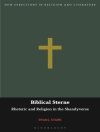When the Rewards Can Be So Great is a selection of craft talks delivered by faculty at the Pacific University MFA in Writing program. The essays in this exciting collection are at times deeply personal, providing insight into the development of the writers in their craft; and at times sharply practical and filled with long-tested approaches for writing with power and effectiveness. All are characterized by care, generosity, and good humor and reflect a wonderfully welcoming eclecticism of styles, interests, traditions, and diversity of voices.
Includes essays by Carolyn Coman, John Mc Nally, Marvin Bell, Pam Houston, Scott Korb, Benjamin Percy, Claire Davis, Sandra Alcosser, Valerie Laken, Mike Magnuson, Ellen Bass, Kwame Dawes, Steve Amick, Laura Hendrie, David Long, Mary Helen Stefaniak, Dorianne Laux, and Debra Gwartney.
Inhaltsverzeichnis
Kwame Dawes, Preface / Carolyn Coman, Why I Write for Children / John Mc Nally, The Shame, the Necessity, the Discouragement, and the Freedom: Rejection, Failure, and the Bigger Picture / Marvin Bell, 32 Statements About Writing Poetry / Pam Houston, Corn Maze / Scott Korb, The Courage to Sound Like Ourselves / Benjamin Percy, Get a Job / Claire Davis, The Created World: Setting & Mystery / Sandra Alcosser, A Match Flaring Up in a Dark Universe / Valerie Laken, The Geography of the Page / Mike Magnuson, First, You Tell: Exposition, Statements of Fact, and Using Prima Facie Evidence to Establish Yonder Discursive Fields / Ellen Bass, The Poem of the Moment / Kwame Dawes, Chameleon of Suffering / Steve Amick, Intimacy, Realism, and Efficacy in the Battle of the POV: A Re-Introduction to 3rd Person / Laura Hendrie, Jaws of Life / David Long, Nine Sentences / Mary Helen Stefaniak, Fiction in First Person: Narrators We Love-And Those We Love to Hate / Dorianne Laux, The Brilliance of the Simple Line / Debra Gwartney, Specificity? Yes, But Only If It’s Relevant / Works Cited / About the Authors / Index
Über den Autor
Born in Ghana in 1962, Kwame Dawes spent most of his childhood in Jamaica. As a poet, he is profoundly influenced by the rhythms and textures of that lush place, citing in a recent interview his ’spiritual, intellectual, and emotional engagement with reggae music.‘ His book Bob Marley: Lyrical Genius remains the most authoritative study of the lyrics of Bob Marley. Dawes, former director of the MFA program at the University of South Carolina, was founder and director of the USC Poetry Initiative between 2000-2011. Between 2005 and 2011 he was the executive director of the University of South Carolina Arts Institute. Since 2008, he has been the associate poetry editor at Peepal Tree Press. Kwame Dawes is the Glenna Luschei Editor of Prairie Schooner and a Chancellor’s Professor of English at the University of Nebraska-Lincoln. Dawes is the director of the Calabash International Literary Festival’s Writer’s Workshop and a faculty member of Cave Canem.












